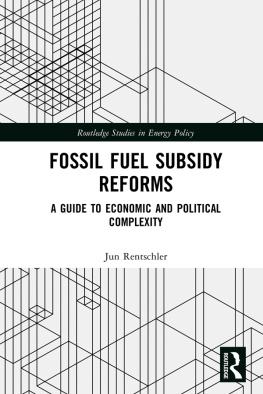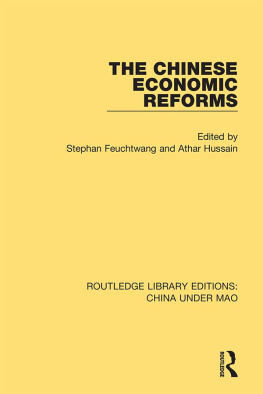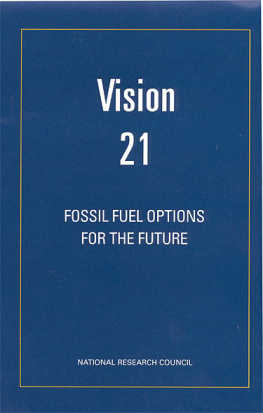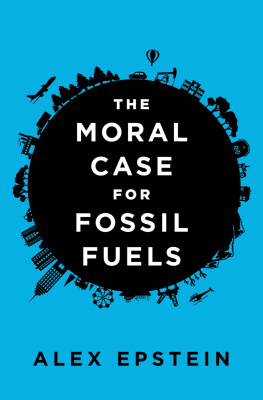The urgent need to reform fossil fuel prices to combat global warming, reduce air pollution deaths, and strengthen fiscal balances is widely understood how to get it done in practice is not. Drawing on extensive economic analysis and country experiences, this rich and easily digestible book provides a comprehensive toolkit for overcoming the barriers to reform. It will be especially valuable reading for those in government, international organizations, and the research community engaged in moving reform forward.
Ian Parry, Principal Environmental Fiscal Policy Expert, International Monetary Fund
The reform of fossil fuel subsidies is a top priority for many resource rich emerging economies, but the challenges of implementation have proven to be significant. This book provides policy makers with an in-depth analysis of the economic implications at the household, firm, and macro levels, and demonstrates how these link with common political economy challenges. The analysis of the impacts of subsidy reforms on firms are particularly novel, and could guide future studies on this under-researched topic. Overall, this book offers evidence-based, concrete, and practical guidance for designing and implementing effective reforms.
Bassam Fattouh, Director, Oxford Institute for Energy Studies; Professor, School of Oriental and African Studies, University of London
[] fossil fuel subsidies cause severe economic distortions that compromise countries prospects of achieving equitable and sustainable development. Yet, the sheer magnitude of fossil fuel subsidies being paid globally also hints at the size and complexity of the challenge. To reform subsidies entails to understand and gauge economic and political trade-offs, to mitigate adverse effects on vulnerable households, to assist firms with implementing efficiency enhancing measures, and to ensure the long-term contribution of subsidy reform to sustainable development. This book explores these issues, with the objective of informing the preparation, design, and implementation of effective fossil fuel subsidy reforms.
Marianne Fay, Chief Economist, Sustainable Development, The World Bank
This book is a must read for anyone wanting to understand how to address the proverbial elephant in the room fossil fuel subsidies reform. Ignoring Dr Rentschlers insights could well render our efforts to achieve a sustainable energy future completely ineffective.
Nigel Jollands, Associate Director, Energy Efficiency and Climate Change, European Bank for Reconstruction and Development (EBRD)
While you will find many articles and books explaining why keeping energy prices artificially low is a bad idea, there are not so many that will help you understand how to improve the situation. However, this is the key question: Fossil fuel subsidies are not so widespread for no reason; they are difficult to reform due to their large distributional impacts, and it remains challenging to manage the negative side effects of any significant reform. This book will help policy makers better understand why reforming fossil fuel subsidies is so difficult, but also help them design policy packages that can address the barriers to the reform. This book will support the implementation of reforms that can cancel the negative effects of energy price distortion while contributing to reducing poverty and promoting development.
Stphane Hallegatte, Lead Economist, Climate Change Group, The World Bank
Phasing out fossil fuel subsidies is easier said than done. This book provides a much-needed coherent analysis from different angles, namely political economy and economics. Jun Rentschler has managed to delve into data from two emerging economies, Nigeria and Indonesia, assessing firms, private households, and regions. The book also develops a macro-economic model to account for fuel smuggling, certainly a real life ingredient for any analysis. Perhaps most importantly, the book makes a concise attempt bringing those strands together and develops an agenda for subsidy reforms. A must-read for scholars, international organisations, and public administrations.
Raimund Bleischwitz, Chair in Sustainable Global Resources and Deputy Director, Institute for Sustainable Resources, University College London
With policy-makers around the world pondering how to ramp up measures against climate change in the wake of the 2016 Paris Agreement, Jun Rentschlers volume is a very timely, clear and perceptive study of a key element, the reform of fossil fuel subsidies. This book brings together economic theory, data and policy analysis in a thoughtful investigation that considers key issues such as the distributional implications of reforms and includes novel aspects such as the impact on firms and the interaction of policies with illicit activities. As such, the volume will be of interest not only to fiscal, energy and climate-change specialists but also anyone involved in applying economics to policy-making in the real world.
Alex Bowen, Special Adviser, Grantham Research Institute on Climate Change and the Environment, London School of Economics and Political Science (LSE)
Fossil Fuel Subsidy Reforms
Countries around the world are spending up to $500 billion per year on subsidising fossil fuel consumption. By some estimates, the G20 countries alone are spending around $450 billion on subsidising fossil fuel production. In addition, the indirect social welfare costs of these subsidies have been shown to be substantial for instance due to air pollution, road congestion, climate change, and economic inefficiency, to name a few. Considering these numbers, there is no doubt that fossil fuel subsidies cause severe economic distortions that compromise countries prospects of achieving equitable and sustainable development.
This book provides a guide to the complex challenge of designing, assessing, and implementing effective fossil fuel subsidy reforms. It shows that subsidy reform requires a careful balancing of complex economic and political tradeoffs, as well as measures to mitigate adverse effects on vulnerable households and to assist firms with implementing efficiency enhancing measures. Going beyond the purely fiscal perspective, this book emphasises that smart subsidy reforms can contribute to all three dimensions of sustainable development environment, society, and economy.
Over the course of eight chapters, this book considers a wide range of agents and stakeholders, markets, and policy measures in order to distil the key principles of designing effective fossil fuel subsidy reforms. This book will be of great relevance to scholars and policy makers with an interest in energy economics and policy, climate change policy, and sustainable development more broadly.
Jun Rentschler is an Economist (YP) at The World Bank working at the intersection of climate change and sustainable resilient development. He is also a Visiting Research Fellow at the Oxford Institute for Energy Studies, the Payne Institute for Earth Resources in Colorado, and the Graduate Institute for Policy Studies in Tokyo. Prior, he worked at the German Foreign Ministry and the European Bank for Reconstruction and Development (EBRD). He is a co-author of Investing in Resource Efficiency: The Economics and Politics of Financing the Resource Transition (2018).







